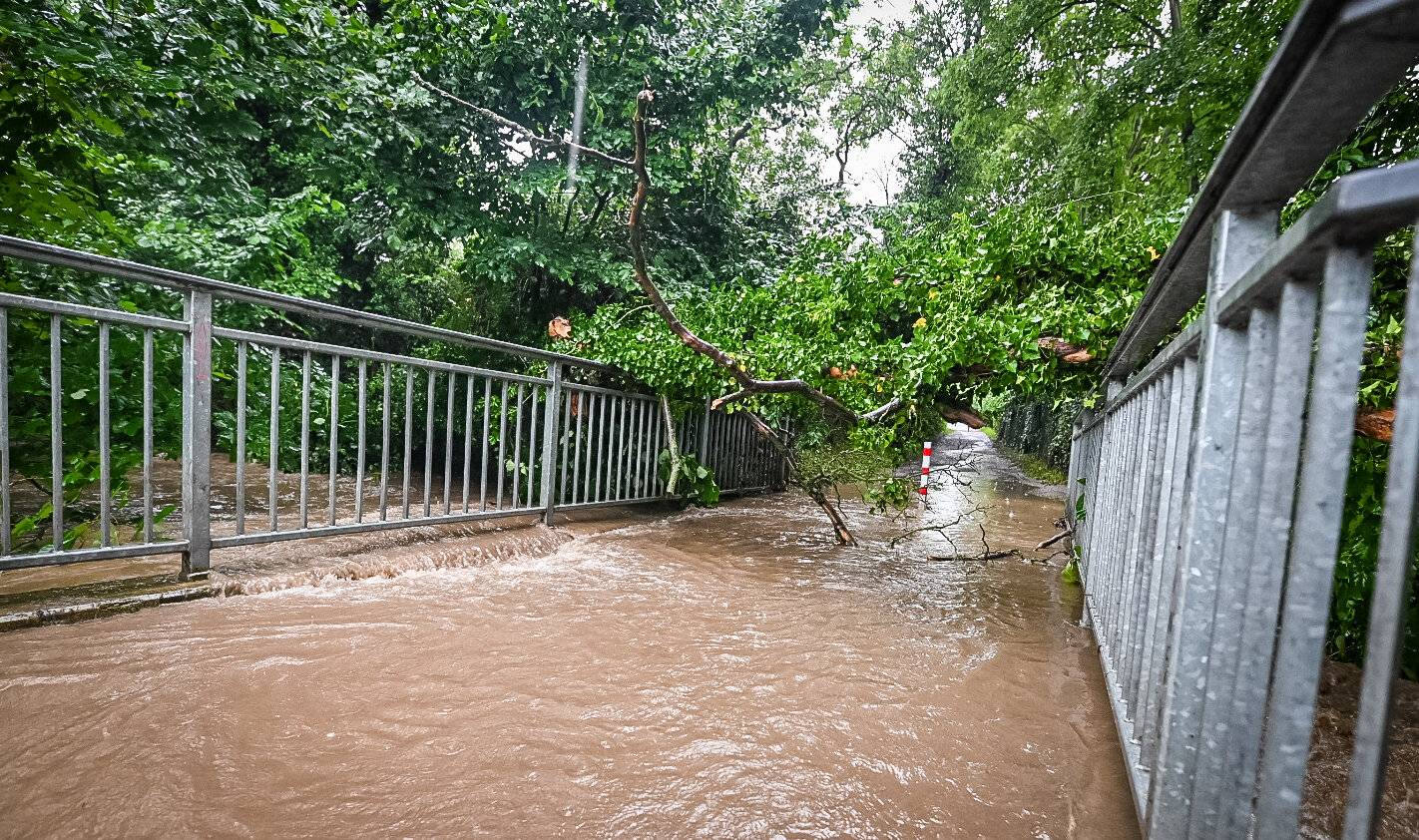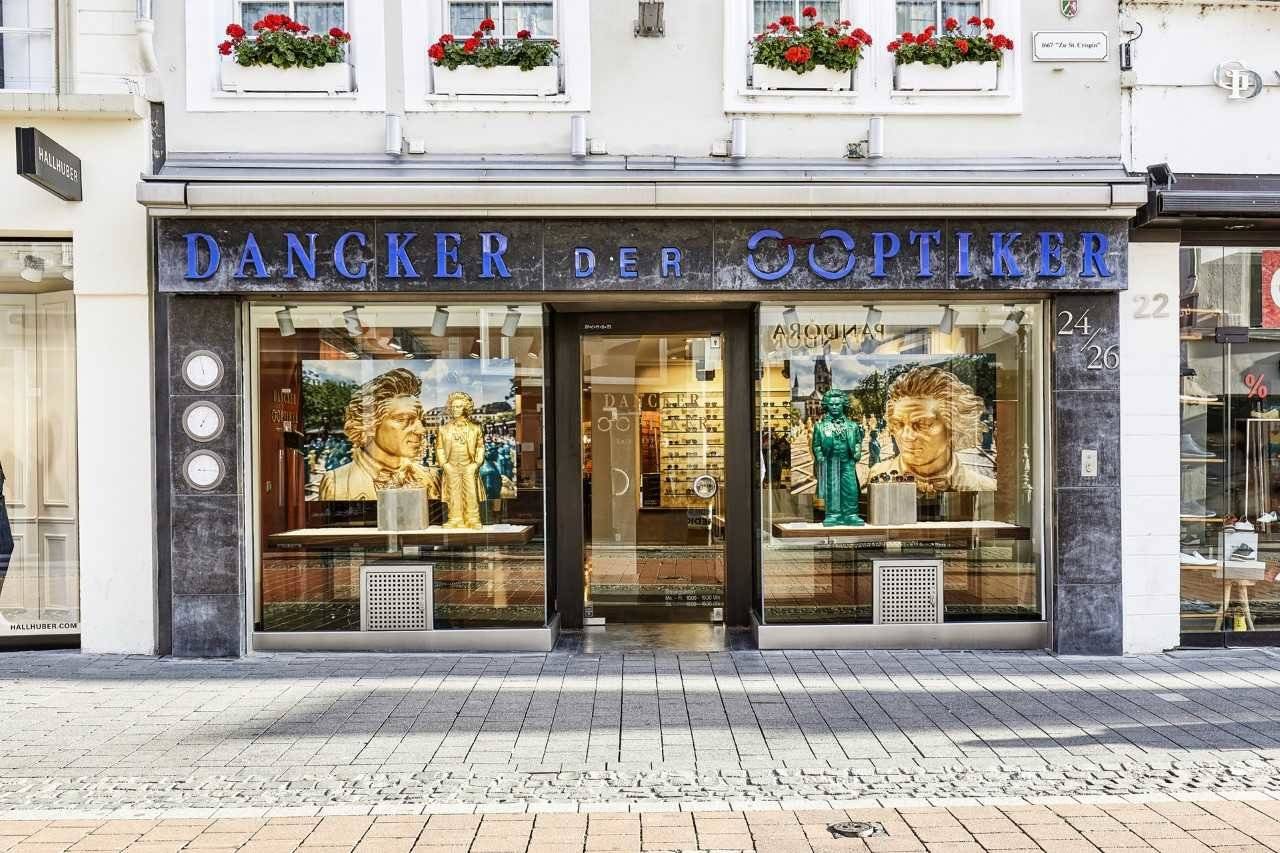City does not extend exemption Pigeons may no longer be fed in Bad Godesberg
Bad Godesberg · In the Godesberg city center, the pollution by pigeon droppings has increased significantly in recent weeks. The animals may therefore no longer be fed in the city. An exemption has been withdrawn.
Pigeon droppings are nothing unusual in the Bad Godesberg city center. From time to time, the animals' droppings can be found in the cityscape. In recent weeks, however, the pollution had increased significantly. In many places - especially in the Alte Bahnhofstraße, Koblenzer Straße and Theaterplatz - the droppings multiplied, the animals found bread crumbs and grains in the immediate vicinity, laid out by passers-by or by people who, due to the pandemic, have received an exemption from the city administration to feed the city pigeons. This is because feeding the animals is normally prohibited. But during the lockdown, the pigeons don't find as much food downtown.
City does not extend exemption after complaints
The Bürger Bund Bonn recently filed a motion on the issue, which will be discussed at the district council meeting on March 17. Due to the "massive pollution" by city pigeons, the administration is to withdraw the exemption permits for feeding "immediately". This has happened - at least for Bad Godesberg. In the meantime, as Andrea Schulte of the municipal press office communicated on request.
"Through complaints, the city has learned that the situation in Bad Godesberg has changed. Therefore, the permits were not extended after February 15. A fundamental change in the entire city area is not known so far," Schulter continued. According to the city administration, the exemptions to feed the pigeons had existed in the period between April 9 and May 8, 2020, and from December 18, 2020, to February 15, 2021. Five volunteers would have received the permits. At four places in the Bad Godesberger City the persons would have been allowed to feed the city pigeons by way of exemption. This was in the old station road before the ticket sales of the public utilities Bonn, at the Moltkeplatz at the first tree beside the plateau there, in the Koblenzer road beside Woolworth as well as at the Fronhofer Galeria beside the bicycle stand at the main entrance.
Working group Stadttauben Bonn criticizes prohibition
Rosemarie Dolatshahi of the working group Stadttauben Bonn criticizes the ban. The animals are still dependent on food, she said, as passers-by pick up their food for home in the city center - so no more crumbs fall to the ground. A pigeon needs to eat about 50 grams of food a day, Dolatshahi said. "The animals are dependent on humans," she explains. The impression that there are now more animals in Bad Godesberg would not be true. The animals would now concentrate in certain places in the city center. In the center, so Dolatshahi estimates, live scarcely 250 pigeons, in all of Bad Godesberg approximately 600. Starved animals are not found in the Stadtbezirk so far, only malnourished pigeons.
Feeding ban is difficult to control
In the Bad Godesberger city center is to be seen again and again how passers-by feed the animals or put out fodder at the tree discs. It does not take long before numerous pigeons arrive for the feast. "There are no targeted controls on the pigeon feeding ban. The city order service reacts in case of complaint," says Andrea Schulte. However, violations of the ban are "basically difficult to detect," she explained further, because "the people always stay only a short moment at the respective place and distribute the food." In addition, she recalled that the focus of the work of the City Ordinance Service is currently on the controls of the Corona measures to combat the pandemic.
Bonnorange could not clean due to low temperatures
The fact that the pollution by the city pigeons was so noticeable in recent weeks was also due to the wintery weather as Jérôme Lefèvre of Bonnorange explains. "We tackle the pigeon droppings with water to loosen them from the substrate. The same problem exists here as with the use of sweepers: cleaning is done with water and is not possible at low temperatures," says the Bonnorange spokesman. In the sub-zero temperatures, the water quickly freezes and leads to slippery paths. "The use of our cleaning vehicle, which goes out exclusively for the removal of pigeon droppings, is therefore also not possible in freezing temperatures," says Lefèvre.
Special vehicle is daily in useIf the weather permits it, the vehicle goes out daily. But the spokesman did not say where exactly it is on the road every day. In January and February, the vehicle was only in use on a few days. Since last Monday, the special vehicle has been on the road again as normal, he said. "The removal of pigeon droppings is done by a high-pressure cleaner. There is no alternative to cleaning with water, for example, for extremely cold days, because the use of water is the most effective," said Jérôme Lefèvre.In principle, however, he sees no need for cleaning intervals to be intensified, as the vehicle is normally "basically in use every day.“In various places, for example under some bridges, where pigeons like to gather, we are tasked with cleaning. If we receive more reports of places soiled by pigeon droppings, then we also approach those responsible in a targeted manner to take over the cleaning here," says Lefèvre.
(Original text: Maximilian Mühlens / Translation: Mareike Graepel)



